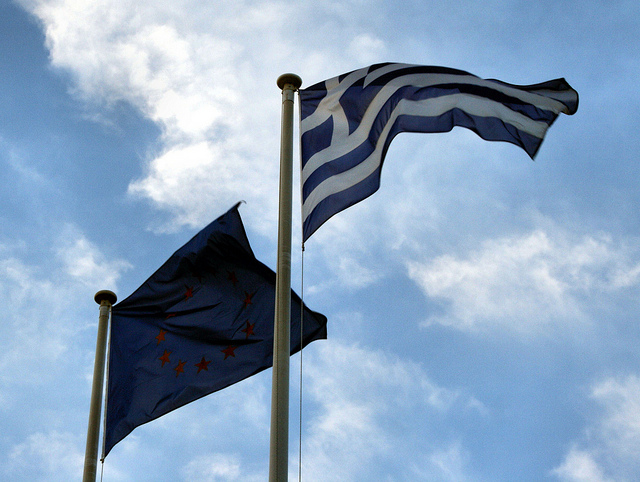Embroiled in the bailout controversy, Greece has now squarely blamed its creditors for the three month impasse.
The government has said that “serious disagreements and contradictions” between the International Monetary Fund and its European partners has led to the standoff in extending the bailout programme. The government has also noted that IMF has refused to concede any ground to Athens on labour market reforms and pensions policy, while the European Commission was unwilling to provide any further relief on Greece’s €315bn debt mountain or relax its fiscal targets on the country. “Under these circumstances there can be no compromise. The responsibility belongs exclusively to the institutions and their weakness of communicating with each other,” the government noted in a Greek paper.
Meanwhile the finance ministers part of the Eurozone negotiations with Greece plan to not set any more deadlines for Greece to come up with reforms to get more funding. The ministers have come to this resolution as the past few deadlines have led to fallout in negotiations. While Greece is quickly running out of cash, the country had pledged to its partners in February that by the end of April it would agree with creditors on a comprehensive list of reforms to get 7.2 billion euros (5.17 billion pounds) remaining from its bailout.
Announcement of reform package at least will allow Athens to unlock remaining aid of 7.2 billion euros, part of the EU and IMF bailout and will potentially return 1.9 billion euros in profits made by the European Central Bank on Greek bonds.
Greece is now dipping fingers in its dwindling domestic funds to repay €200m to the IMF on Wednesday and another €770m on May 12. The leftist government has raided the cash funds of its universities, hospitals and local government bodies, to continue paying out salaries and pensions. Already arrears are building up to its suppliers and Athens is now thinking of introducing a tax on cash withdrawals, in a desperate bid to prevent money leaving the financial system.
More than €28bn has fled Greek banks since November 2014, while tax revenues have collapsed since Syriza entered office in late-January. The country’s economic growth is also doomed with high unemployment, stubborn deflation and weak investment will see GDP grow by just 0.5pc in 2015, from an earlier projection of 2.5pc.
The government has said that “serious disagreements and contradictions” between the International Monetary Fund and its European partners has led to the standoff in extending the bailout programme. The government has also noted that IMF has refused to concede any ground to Athens on labour market reforms and pensions policy, while the European Commission was unwilling to provide any further relief on Greece’s €315bn debt mountain or relax its fiscal targets on the country. “Under these circumstances there can be no compromise. The responsibility belongs exclusively to the institutions and their weakness of communicating with each other,” the government noted in a Greek paper.
Meanwhile the finance ministers part of the Eurozone negotiations with Greece plan to not set any more deadlines for Greece to come up with reforms to get more funding. The ministers have come to this resolution as the past few deadlines have led to fallout in negotiations. While Greece is quickly running out of cash, the country had pledged to its partners in February that by the end of April it would agree with creditors on a comprehensive list of reforms to get 7.2 billion euros (5.17 billion pounds) remaining from its bailout.
Announcement of reform package at least will allow Athens to unlock remaining aid of 7.2 billion euros, part of the EU and IMF bailout and will potentially return 1.9 billion euros in profits made by the European Central Bank on Greek bonds.
Greece is now dipping fingers in its dwindling domestic funds to repay €200m to the IMF on Wednesday and another €770m on May 12. The leftist government has raided the cash funds of its universities, hospitals and local government bodies, to continue paying out salaries and pensions. Already arrears are building up to its suppliers and Athens is now thinking of introducing a tax on cash withdrawals, in a desperate bid to prevent money leaving the financial system.
More than €28bn has fled Greek banks since November 2014, while tax revenues have collapsed since Syriza entered office in late-January. The country’s economic growth is also doomed with high unemployment, stubborn deflation and weak investment will see GDP grow by just 0.5pc in 2015, from an earlier projection of 2.5pc.





